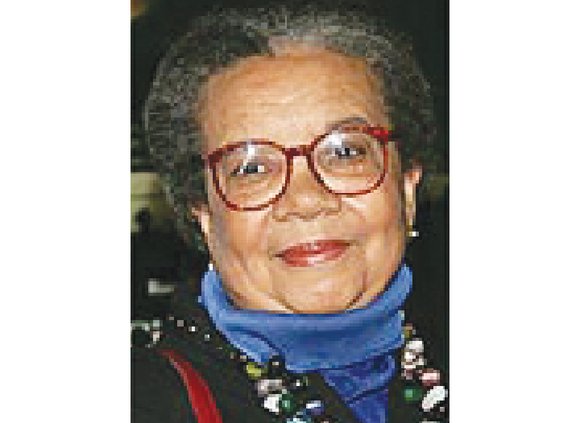Charity no substitute for justice
6/12/2015, 11:28 a.m.
Marian Wright Edelman
In his speech the night before his murder, Dr. Martin Luther King, Jr. repeated the Biblical parable of the Good Samaritan who stopped and helped the desperate traveler who had been beaten, robbed and left half dead as he journeyed along the road from Jerusalem to Jericho. The Good Samaritan is traditionally considered a model of charity for his willingness to treat a stranger as a neighbor and friend. Dr. King agreed that we all are called to follow his example and serve those around us who need help. But he reminded us that true compassion — true justice — requires attacking the forces that leave others in need in the first place.
Many of the cracks in America’s edifice Dr. King identified more than a half century ago are deeper today. CEO compensation, corporate greed and welfare have skyrocketed to morally obscene levels while middle class and minimum wage workers and people seeking work have been left behind. In 2012-2013, 4.9 million American households, including 1.3 million with children, had no cash income, relying only on the Supplemental Nutrition Assistance Program (SNAP, or food stamps) to stave off hunger.
Government safety net programs have lifted many out of poverty. Investments in nine federal programs that help make work pay, increase employment and meet children’s basic needs could lift 60 percent of our 14.7 million poor children out of poverty now. Instead, these programs are under systematic attack today, and we must reject proposals that treat our children so unfairly while others lavish tens of billions on the powerful and rich.
With true structural change there would be far less need for charity. Without it, the very best charitable efforts will never be enough. How many private foundations could make up for the denial of Medicaid or for the looming cuts in food stamps and other safety net programs? Yet, like so many other prophets, Dr. King’s voice was often at odds with leaders or conveniently left unheard by citizens in his own land.
During Dr. King’s lifetime, President Lyndon B. Johnson’s great War on Poverty attempted to address some of the inequalities in the United States that needed redressing and restructuring. But Richard Nixon sent a very different message as he accepted the Republican presidential nomination in August 1968, already criticizing President Johnson’s new anti-poverty efforts.
When Ronald Reagan ran for president in 1980, he gave a similar message about letting people take care of themselves — all the more charged because he chose to deliver it at an appearance at the Neshoba County Fair in Philadelphia, Miss., the county where three young civil rights workers, James Chaney, Andrew Goodman and Michael Schwerner were murdered in June 1964.
Should we be satisfied because we helped a single wounded traveler if we didn’t do anything else about the rest who travel the road to Jericho at risk of attack or the unjust stop-and-frisk and police brutality tactics and law enforcement policies that too often take rather than protect black lives?
Will we just let everybody worry about themselves and rely on needed acts of charity to get by? Or, will we reform the deep, unjust structural inequalities and injustices at America’s core that favor the powerful?
Marian Wright Edelman is president of the Children’s Defense Fund.







